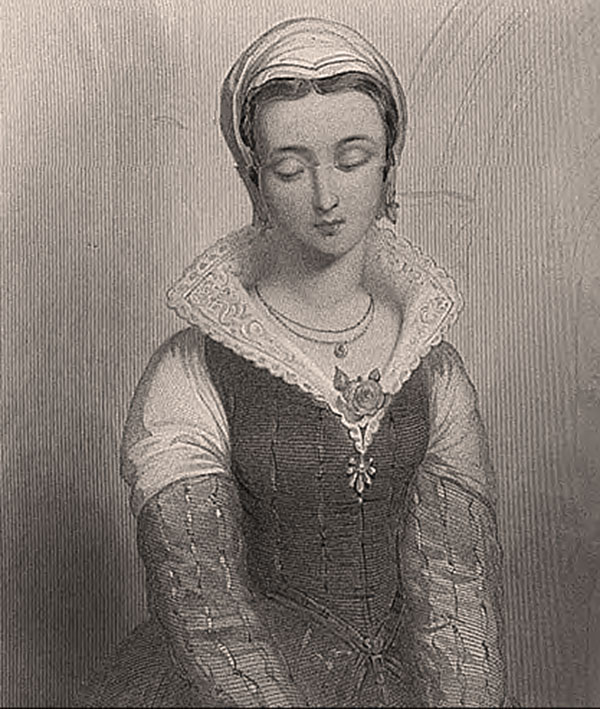The Value of Life in Light of Eternity - 1533

Lady Jane Grey
Introduction
On this day, Tuesday 29 August, 1533, John Nichols (a historian of Lady Jane Grey and Mary Tudor) dined in the Tower of London with the family charged with custody of Lady Jane Grey. She was in prison because of her own family’s attempts to place her on the throne of England. Nichols was seated next to Lady Jane and reported the following conversation. (Froude modernized the spelling and we have added punctuation.)
Quote
“We fell in discourse of religion. ‘I pray you,’ quoth she, ‘have they mass in London?’ ‘Yea, forsooth,’ quoth I, ‘in some places.’ ‘It may so be,’ quoth she. ‘It is not so strange as the sudden conversion of the late duke [Somerset, who led the opposition to Queen Mary and put Jane on the throne for nine days, converted to Roman Catholicism while awaiting death]; for who could have thought,’ said she, ‘he would have so done?’ It was answered her, perchance he thereby hoped to have had his pardon. ‘Pardon!’ quoth she, ‘woe worth him! He hath brought me and our stock in most miserable calamity by his exceeding ambition; but for the answering that he hoped for life by his turning, though other men be of that opinion, I utterly am not. For what man is there living, I pray you, although he had been innocent, that would hope of life in that case, being in the field in person against the queen, as general, and after his taking [capture] so hated and evil spoken of by the [House of ] Commons; and at his coming into prison, so wondered at as the like was never heard by any man’s time. Who can judge that he should hope for pardon whose life was odious to all men? But what will ye more? Like as his life was wicked and full of dissimulation, so was his end thereafter. I pray God I view no friend of mine die so. Should I, who am young and in my few years, forsake my faith for the love of life? Nay, God forbid! Much more he should not, whose fatal course, although he had lived his just number of years, could not have long continued. But life was sweet, it appeared. So he might have lived, you will say, he did not care how; indeed the reason is good; for he that would have lived in chains to have had his life, by like would leave no other means unattempted. But God be merciful to us, for he [Jesus] saith, whoso denyeth him before men, he will not know him in his Father’s kingdom.’”
Nichols, John. The Chronicle of Queen Jane and of Two Years of Queen Mary, and Especially of the Rebellion of Sir Thomas Wyat.





